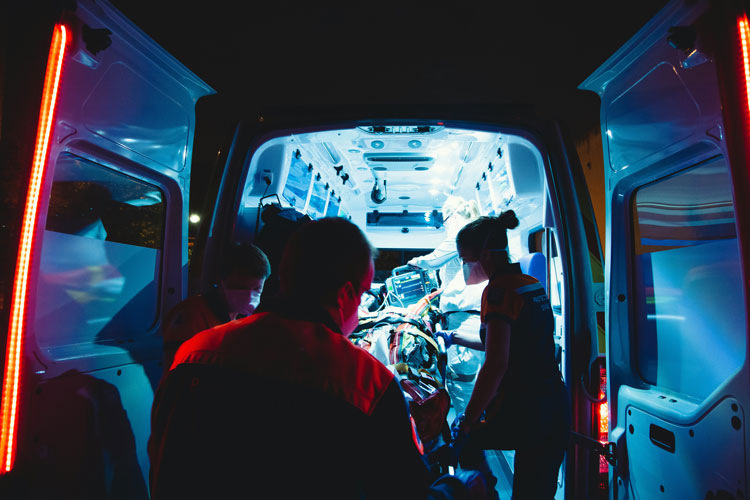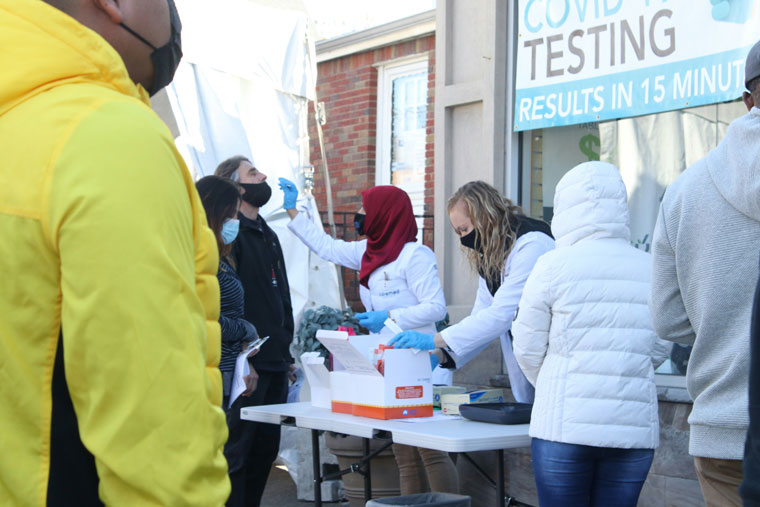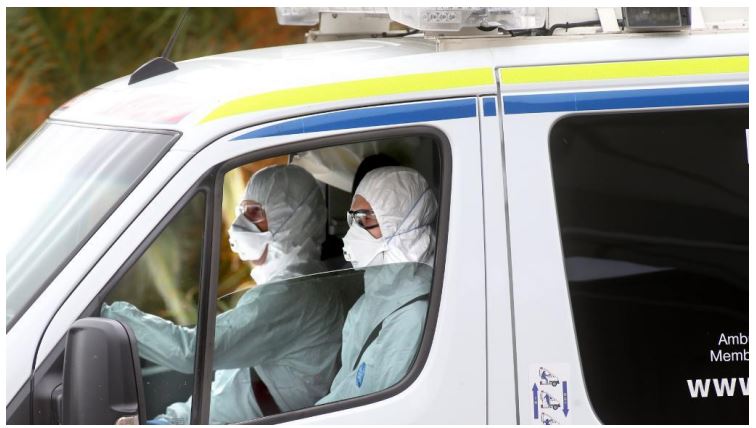If you’re looking for inspiration to change, look no further than our frontline health workers who are making the selfless decision to help others every day, writes paramedic Paul Spinks.
For the last 16 years I have been walking into people’s homes dealing with all kinds of medical illnesses and contagions. Sometimes people’s conditions are known, and red flags go up to exercise precautions, don a mask, gloves and a protective apron, but for most of our patients, they, or we have no idea of the bugs they may be carrying.
Despite this, 16 years has passed and “touch wood” my immune system has survived countless potential threats.
But there is a new kid on the block and it’s smart, adaptive and aggressive. It’s in thousands of homes and infecting thousands of people and while the world goes into lockdown and practices social distancing, paramedics will still come calling, regardless of the potential danger.
A paramedic’s first port of call is often people’s homes, we have become experts looking for things that may harm us. The knife that is sitting on the bench, the alcohol bottle in the bin, that martial arts certificate on the wall, or perhaps that abstract skin condition you’re wearing.
But what happens when you can’t see danger, hear it, smell it or touch it and there are no signs or symptoms?

As all health professionals are facing, a simple conversation with a patient infected with coronavirus can send microscopic particles in the form of an aerosol into the air. All you need to do is breathe and you will inhale your patient’s DNA. Yes, the danger of that knife on the bench used to be so much easier to manage.
All health workers are faced with this same concern and the added worry of inadvertently passing on this contagion to our loved ones.
There is no choice than to take this risk with the work we do, we have dedicated our lives to protecting and helping the public and while we appreciate the applauds for our work, what we ask is that the public step up and do their bit to ensure this virus does not break out in Australia.
One of my greatest concerns when it comes to this virus is over selling this as an old person’s problem, with many young people believing they are immune, when in truth if this virus takes hold, it has the ability to knock all of us down as quickly and as aggressively as any 80 year old.
Vision of young Australian’s at the beach, parks and in general ignoring health advice is a risk not only to themselves, but everybody they come into contact with.

Yes, this virus is not as deadly to our youth, but it is to your parents, grandparents and other Australian’s you may infect, and if you have an underlying health issue you may or may not be aware of, you – so do the right thing and respect the social distancing laws and only leave your home for the essentials you need.
My other grave concern is how we cope with the virus’s impact upon our mental health and wellbeing.
Long before we ever heard the word coronavirus Australia already had chronically poor mental health and about as much resilience as an unarmed soldier.
Australian’s are the second highest user of antidepressants in the world, issuing 50 million scripts a year and in a nation where anxiety was already a pandemic, the thought of what our mental health picture will be post lockdown terrifies me.
For generations we have thrust ourselves into overly busy lives, buying too many things we don’t need or even want, consider drinking as the best way to wind down and find mental clarity.
Prior to the virus, dealing with those who have had an anxiety attack or a psychotic break are among the most common call-outs we face and if there is to be a silver lining through this doom and gloom, then the coronavirus may be the best wake up call the world has ever seen.

For a paramedic there are many life lessons learned, however the biggest of them all would be “don’t let trauma be the catalyst for change.”
People abuse their hearts to the point they have a heart attack, their minds to the point of insanity, the bodily organs to a point of failure, by the age of 65, 80 per cent of us have a chronic illness and we have seen how dangerous secondary conditions can be when a virus strikes.
As I have shared an ambulance with a seriously ill person, people begin to see the values of health and family as what should have been their priority, yet they have rarely practiced this in life.
Perhaps the legacy of COVID-19 will be a drive to take action to invest in our own wellbeing by acknowledging that everything we do and say matters, that we all have a choice in how we decide to live our lives, creating positive actions post-virus that we will carry with us through our entire lifetime.
If you are looking to inspiration for change, look no further than our frontline health workers, who are making that positive decision now to help others, so help them, do the right thing now and then be inspired to make that positive decision to change your own life for the better once this virus has passed.
Paul Spinks is a paramedic, mental health advocate and trauma counsellor.
3/4/2020 News Corp Australia Network – The Daily Telegraph